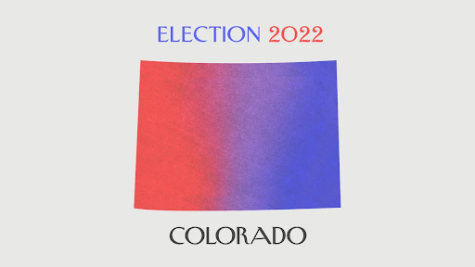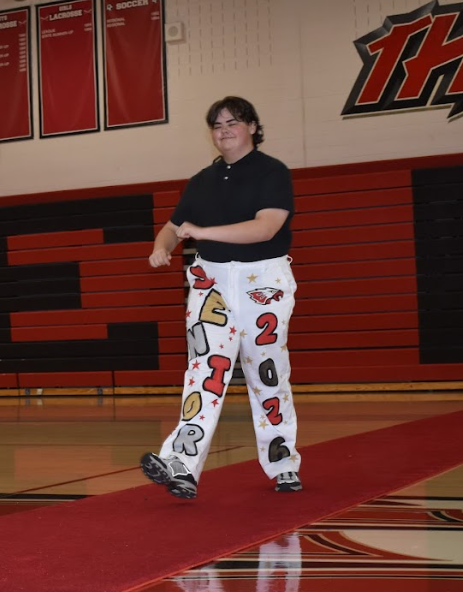Colorado’s Political Climate: 2022 Midterm Election
Members of the EHS senior class cast their first ballots in the midterm election this month.
With another year comes another election and more political conversations surrounding the future of America, and in this case, the future of Colorado. In many households, midterm elections are seen to have equal or even greater importance than presidential elections.

Since 1920, Colorado has been known as a red state–a state that tends to vote for the Republican candidate. But at the start of the 1990s, something shifted. For the past 30 years, Colorado has been considered a purple state, or swing state, because it is difficult to predict which party will win. But in the last two mid-term elections, Colorado has voted for the democratic party while all democratic officials reelected this mid-term are incumbent members.
As of the 2022 midterm election, all government offices– Senate, Governor, Secretary Of State, and Attorney General– were dominated by democratic representatives, holding onto leads between 10.8% to 18.5%. The Democrats also won five of the eight seats in the House of Representatives designated to Colorado. The eighth seat is still undecided. The close election between Democrat Adam Frisch and Republican Lauren Boebert in District 3 called for a state-mandated recount, despite Frisch’s concession last week. As of the recount, there was only a 550-vote difference between the two candidates.
Many Eaglecrest seniors who have recently turned 18 were encouraged and eager to participate in their first voting election; others did not care to vote or even forgot that the midterm election was this year.
Colorado has been seen as one historically red state becoming a blue state with states like Arizona and Nevada showing similar trends. According to 270 To Win, “Colorado’s population has been growing, and it now has 50% more electoral votes than it did in the 1960s,” These additional electoral votes increase Colorado’s value and influence in presidential elections, making the midterm elections and Colorado’s chosen representatives so much more important.
Senior Andrew White, who is a registered Democrat, was recently able to vote after turning 18 right before the midterm ballots were due. White took it upon himself to research each candidate in every office to ensure he was using his vote and voice for the right reasons, based on his morals and values.
“I think it was fun looking into what I believe in and the little intricacies of little policies,” White said. “Voting for people and policies are so different, and I feel like my opinion changes when it’s a specific policy or if it’s an overall person who covers a bunch of different policies.”
Even with so much excitement and urge for change in Colorado among Gen-Z voters, many 18-year-old EHS students did not vote this midterm, like Anjolene Ramiro. “Time was the reason I didn’t vote. I had just turned 18 and didn’t even realize how soon the midterm election was,” she said. With a lack of consistent talk within family and educational environments, many students feel that they lack the knowledge and understanding about the midterm election to feel informed enough to participate in voting.
The lack of election-based conversation may disproportionately affect voters of color. In years prior, minority participation percentage in the Black and Asian communities hasn’t been well documented. Colorado polls displayed “not enough data” to show the rate of voter participation for specific POC communities in the last presidential election. “Not even as just a person of color, but also as a black gay man, it is important to have policies in place that protect the minorities and the LGBTQ+ community, so voting does matter,” said senior Inshera Owiredu-Gyamera.
As the years go on and students become adults, some believe it’s important to start these voting habits now to be productive citizens of society in advocating for the change they wish to see by voting for those who align with their beliefs.
“I voted because I knew this was the best way to get things to change, especially with the governor, school board elections, and district attorney elections. These are really important aspects of not only my life but also because of how my community is affected. When I vote, I am not only thinking about myself but about those in my community who could be affected by certain policies put in place,” said senior Ananya Shrestha.
This election had a higher voter registration rate among Americans under the age of 25, according to CIRCLE Research at Tufts University. Gen Z holds a significant amount of responsibility and power as they grow up and continue to push for overdue change.

Described as passionate and independent, editor Rhyan Herrera has been in Nest Network for three years. After this year, she plans on going to a college...





